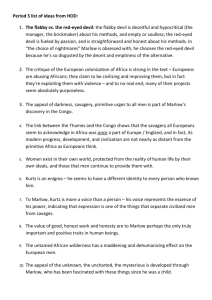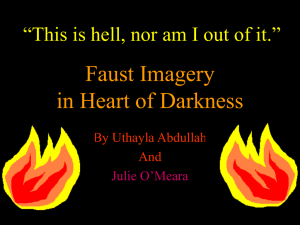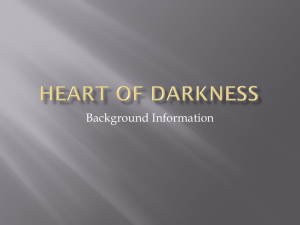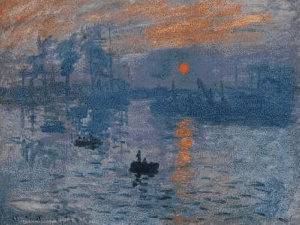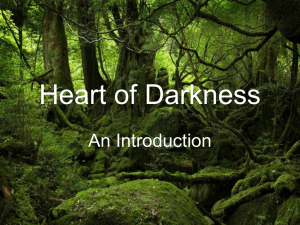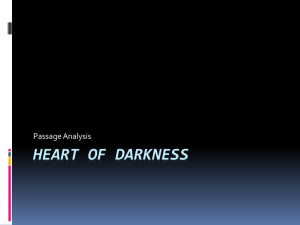This essay is sometimes brilliant and sometimes plodding. It also
advertisement
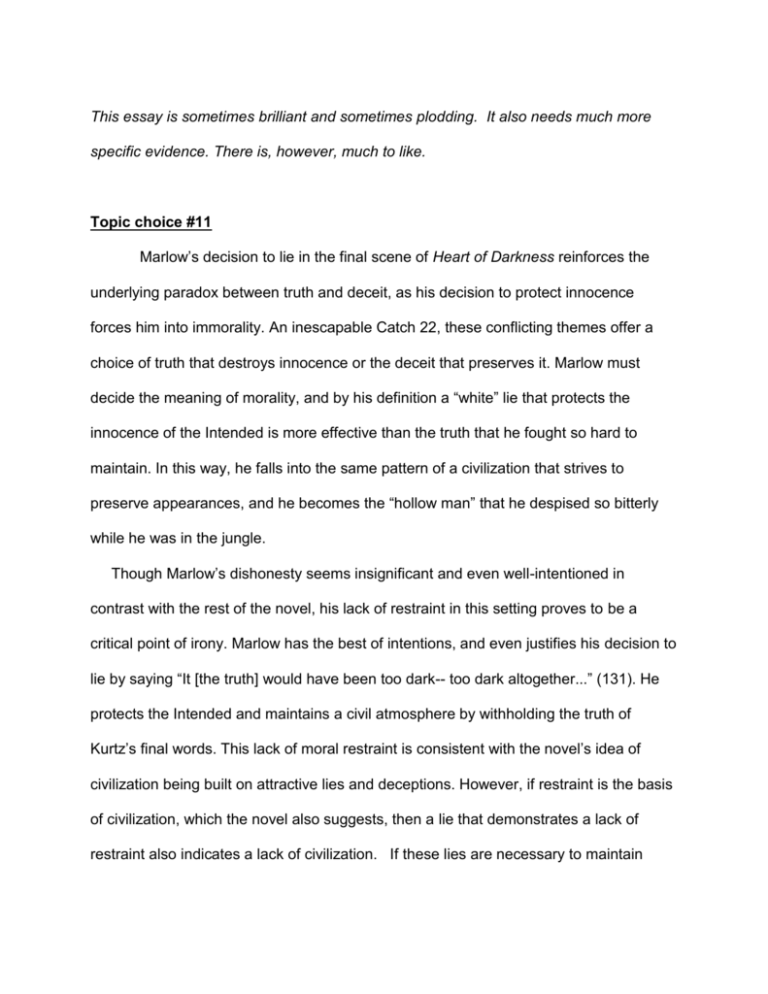
This essay is sometimes brilliant and sometimes plodding. It also needs much more specific evidence. There is, however, much to like. Topic choice #11 Marlow’s decision to lie in the final scene of Heart of Darkness reinforces the underlying paradox between truth and deceit, as his decision to protect innocence forces him into immorality. An inescapable Catch 22, these conflicting themes offer a choice of truth that destroys innocence or the deceit that preserves it. Marlow must decide the meaning of morality, and by his definition a “white” lie that protects the innocence of the Intended is more effective than the truth that he fought so hard to maintain. In this way, he falls into the same pattern of a civilization that strives to preserve appearances, and he becomes the “hollow man” that he despised so bitterly while he was in the jungle. Though Marlow’s dishonesty seems insignificant and even well-intentioned in contrast with the rest of the novel, his lack of restraint in this setting proves to be a critical point of irony. Marlow has the best of intentions, and even justifies his decision to lie by saying “It [the truth] would have been too dark-- too dark altogether...” (131). He protects the Intended and maintains a civil atmosphere by withholding the truth of Kurtz’s final words. This lack of moral restraint is consistent with the novel’s idea of civilization being built on attractive lies and deceptions. However, if restraint is the basis of civilization, which the novel also suggests, then a lie that demonstrates a lack of restraint also indicates a lack of civilization. If these lies are necessary to maintain civilization, then restraint, or the absence of such lies, leads to a collapse in the concept of civilization itself. Therefore, the basis of civilization is having no civilization at all. The cannibals best demonstrate this paradox because Marlow describes them, as having restraint, although he says “I would have just as soon expected restraint from a hyena prowling amongst the corpses of a battlefield” (70). Marlow sees the natives as savages lacking civilization, but their superior levels of restraint indicate a greater level of civilized nature than Marlow and his crew possess. The foundation for such complex irony lies in the meaning of the word restraint, understood here to be the ability to control one’s passions. Still, everyone, including Conrad’s characters, has different passions, making it hard to define restraint in a general sense. To recognize Marlow’s lie as a lack of restraint, it is necessary to understand his passion for truth in order to understand the significance of even a white lie to him. Marlow establishes his passion with the juxtaposition of truth and evil, suggesting that evil is the antithesis of truth. He confirms this implication when he says, “You know I hate, detest, and can’t bear a lie-- not because I am straighter than the rest of us, but simply because it appalls me” (44). Another ironic parallel, this statement suggests the subsequent hypocrisy in Heart of Darkness, and yet it is this line that makes a hypocrite out of Marlow when he deceives the Intended. He lies in hopes of preserving the appearance of civilization, ignoring his morality for the pursuit of his own Noble Cause. Ironically, these are the same ideals that he criticizes in Kurtz and the other imperialists who claim to carry out a Noble Cause in Africa. In discussing imperialism, Marlow says of the imperialists: “To tear out of the bowels of the land was their desire, with no more moral purpose at the back of it than there is in burglars breaking into a safe” (50). Marlow suggests that their intentions were impure and that their work was immoral, although they had convinced themselves otherwise. His disgust shows a heightened sensitivity to matters of truth versus self-deceit. On the other hand, it can be argued that Marlow’s intentions, like those of the blindfolded woman in the portrait, were innocent and pure but destined for destruction. However, he still makes a conscious decision to betray his passion for truth, and his dishonesty demonstrates a lack of moral restraint. Nonetheless, because Marlow was only ever capable of mediocre good, he is likewise only capable of mediocre evil. Whereas Kurtz, who had great promise, commits atrocities towards humanity on a scale equivalent of his potential for good, Marlow’s ordinariness limits his potential. Described early in the novel as having “sunken cheeks, a yellow complexion, a straight back, an ascetic aspect, and with his arms dropped, the palms of his hands outwards, resembled an idol” (4), Marlow is not the typical “hero” character, and he never does anything outstandingly good or moral throughout Heart of Darkness. He is always on the edge of morality, and as he says, he “had been permitted to draw back my hesitating foot” (120). Consequently, when he abandons moral restraint and succumbs to evil at the end of the novel, it is a relatively mediocre evil, especially in contrast with Kurtz’s capacity for darkness. Even so, Marlow becomes a hollow man. In a piece of foreshadowing commentary about the station manager, Marlow unintentionally describes all who abandon morality, as he says, “Perhaps there was nothing within him.....Men who come out here should have no entrails” (35). Though Marlow refers to the stationmaker’s health, his statement is applicable to Kurtz, the harlequin, himself-- anyone who forfeits morality. Ultimately, what the hollow man lacks within is restraint, whatever that may be for him. For Marlow, restraint means truth, and “he must meet that truth with his own true stuff-- with his own inborn strength” (60). This contradictory statement undermines Marlow, who wants to fight for truth with the “stuff” that a hollow man does not have. The paradox Marlow faces is in the innocence and the morals he fights for: he wants to preserve the innocence of the Intended, but she represents civilization, which is what causes his downfall. He fights for his belief that “They-- the women I mean-- are out of it-- should be out of it. We must help them stay in a beautiful world of their own, lest ours gets worse” (81). However, in his perceived “moral protection” of the Intended, he ultimately protects the essence of civilization, which is held together by the attractive lies and deceptions necessary to maintain it. Faced with a Catch 22, Marlow almost subconsciously chooses to maintain civilization rather than to maintain restraint, proving that it is not the jungle, but rather civilization that endangers morality. Works Cited Conrad, Joseph. Heart of Darkness. New York: Bantam Books, 1969. Print. Katie Leonard 5th Period Katie Leonard 5th Period

